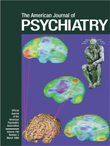“Just beneath the surface of the false memory debate, the psychotherapy profession is fighting for its life.” So writes Professor Fonagy in the final chapter of this monograph, which consists primarily of the proceedings of a June 1994 conference sponsored by the Psychoanalysis Unit of University College, London, and the Anna Freud Centre. There seems little doubt that many of the conference members shared these worries; several of them noted that on the other side of the Atlantic, only a month earlier, the landmark Ramona decision had come down, granting victory to a father who sued two therapists and a hospital on the charge that they had implanted false memories of childhood sexual abuse in his daughter Holly.
It is perhaps not surprising, then, that the conference participants strain to achieve caution and balance in their commentary. But the results, I fear, may be somewhat disappointing to the nonpsychoanalytic reader. There is an abundance of clinical anecdote, discussion of such postulated mental mechanisms as “headed records” or the “present and past unconscious,” and evidence based on countertransference experiences, but little presentation of evidence from specific empirical studies. Many of the participants offer interesting comments based on their personal experiences, but virtually none offers quantitative data.
The first and last chapters, however, have a broader appeal. In the introductory presentation, Prof. Lawrence Weiskrantz outlines nicely the philosophical and methodological flaws that permeate research and analysis on the recovered memory issue. This chapter culminates, appropriately, in a plea for prospective research studies on the memories of victims of documented trauma. In the final chapter, Fonagy and Target reiterate the dangers of confirmation bias in retrospective studies and conclude with several warnings for therapists dealing with patients who have apparently recovered memories of child abuse.
In both of these chapters, and in the chapter by Sinason as well, one error recurs: all three authors cite the 1994 study by Williams
(1), in which 38% of 129 interviewed adults failed to report an episode of childhood sexual abuse that they were documented to have undergone as children. Williams implied in her article that these women did not recall the index episode of abuse. In fact, however, Williams’ subjects were never specifically asked whether they remembered the index episode of sexual abuse. To equate nonreporting with nonrecall under these conditions is clearly flawed, yet none of the three chapter writers alerts us to this problem.
In short, this volume may be of interest to clinicians, especially psychoanalysts, who see patients with apparent recovered memories. But for a detailed update on research findings in this rapidly evolving area, the reader might do better to turn to one of the many recent reviews in current journals.

